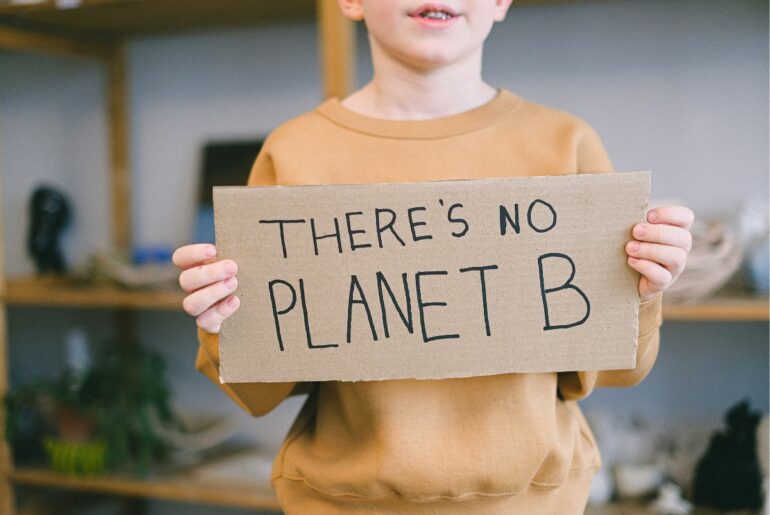This article was originally published on Truthout.org.
In a landmark ruling on August 14, a judge ruled in favor of a group of young Montanans suing the state saying that officials had violated their constitutional right to a healthful environment in refusing to address the climate crisis.
Held v. Montana is the first climate lawsuit brought on the basis of constitutional law to go to trial. The group of 16 young plaintiffs challenged Montana’s pro-fossil fuel energy policy, arguing that its contribution to the climate crisis violates the guarantee in the state constitution that the “state and each person shall maintain and improve a clean and healthful environment in Montana for present and future generations.”
In a 103-page decision, Judge Kathy Seely acknowledged fossil fuels’ and greenhouse gas emissions’ role in the climate crisis and said that the state is contributing to the crisis by barring state agencies from considering climate impacts in environmental reviews.
Our Children’s Trust and the Western Environmental Law Center, which represented the plaintiffs in the trial, celebrated the ruling and said that it will inspire a wave of similar lawsuits across the country.
“As fires rage in the West, fueled by fossil fuel pollution, today’s ruling in Montana is a game-changer that marks a turning point in this generation’s efforts to save the planet from the devastating effects of human-caused climate chaos,” said Julia Olson, Our Children’s Trust chief legal counsel and executive director, in a statement. “This is a huge win for Montana, for youth, for democracy, and for our climate. More rulings like this will certainly come.”
“It is incredibly gratifying to see a Montana court recognize the effects the state’s harmful energy policies have on young people and all Montanans,” said Barbara Chillcott, senior attorney for Western Environmental Law Center. “Judge Seeley’s ruling underscores the reality that Montana’s government is actively working to undermine our constitutional right to a clean and healthful environment.”
The plaintiffs range in age from 5 to 22, and include people like Rikki Held, for whom the lawsuit was named, who argued that the success of her family’s ranch was being jeopardized by climate impacts. Another plaintiff, Sariel Sandoval, who grew up on the Flathead Indian Reservation in northern Montana, argued that Montana’s ignorance of climate impacts was impacting her tribe’s ability to fish in the local lake due to lessened snowpack.
The lawsuit was specifically aimed at a provision in the Montana Environmental Policy Act (MEPA) that prevents officials from weighing impacts “that are regional, national, or global in nature” in environmental reviews. During the trial, the state didn’t even present any climate science in its favor. State attorneys have 60 days to appeal.
“The State authorizes fossil fuel activities without analyzing GHGs or climate impacts, which result in GHG emissions in Montana and abroad that have caused and continue to exacerbate anthropogenic climate change,” Seely wrote.
For climate advocates, the suit is proof that constitutional law can be a legitimate avenue to challenge states’ energy and environment policies — likely welcome news to young plaintiffs bringing a similar lawsuit in Hawaii, arguing the state’s development practices fail to take into account the climate crisis, violating their constitutional rights.
“This court ruling is a step toward climate justice,” said Delta Merner, lead scientist for Union of Concerned Scientists’s Science Hub for Climate Litigation, in a statement. “The case in Montana is a clear sign that seeking climate justice through the courts is a viable and powerful strategy.”







